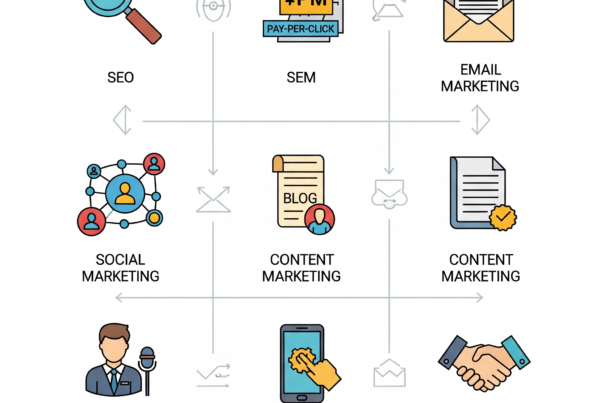
The Three Stages of Marketing: A Comprehensive Guide
Marketing is a crucial aspect of any business strategy. It involves a series of activities that help promote and sell products or services to customers. To effectively navigate the world of marketing, it is essential to understand the three stages of marketing. These stages provide a framework for developing and implementing successful marketing campaigns. In this article, we will explore each stage in detail and discuss how they contribute to the overall marketing process.
Stage 1: Market Research and Analysis
The first stage of marketing is market research and analysis. This stage involves gathering and analyzing data about the target market, competitors, and industry trends. Market research helps businesses gain insights into customer needs, preferences, and behaviors. It provides valuable information that can be used to develop effective marketing strategies.
During the market research and analysis stage, businesses use various research methods such as surveys, interviews, and focus groups to collect data. They also analyze existing data sources such as market reports, industry publications, and online forums. The goal is to gather as much relevant information as possible to understand the market dynamics and identify opportunities.
Once the data is collected, businesses analyze it to identify patterns, trends, and customer preferences. They also evaluate their competitors’ strategies and positioning in the market. This analysis helps businesses identify their unique selling propositions and develop marketing messages that resonate with their target audience.
Key activities in the market research and analysis stage include:
- Defining the target market
- Conducting customer surveys and interviews
- Analyzing market trends and competitors
- Identifying customer needs and preferences
- Developing buyer personas
Stage 2: Marketing Strategy and Planning
Once businesses have gathered and analyzed the necessary data, they move on to the second stage of marketing: marketing strategy and planning. This stage involves developing a comprehensive marketing plan that outlines the objectives, target audience, messaging, and tactics to be used.
The marketing strategy and planning stage require businesses to make strategic decisions about how to reach their target audience and achieve their marketing goals. It involves developing a positioning strategy, setting marketing objectives, and determining the marketing mix (product, price, place, and promotion).
During this stage, businesses also develop a marketing budget and allocate resources accordingly. They determine which marketing channels to use, such as digital advertising, social media, content marketing, or traditional advertising. They also define the key performance indicators (KPIs) to measure the success of their marketing efforts.
Key activities in the marketing strategy and planning stage include:
- Setting marketing objectives
- Developing a positioning strategy
- Creating a marketing budget
- Choosing marketing channels
- Defining key performance indicators (KPIs)
Stage 3: Implementation and Evaluation
The third and final stage of marketing is implementation and evaluation. This stage involves executing the marketing plan and monitoring its performance. It is where businesses put their strategies into action and measure the effectiveness of their marketing efforts.
During the implementation stage, businesses execute their marketing tactics, such as running advertising campaigns, creating content, or launching new products. They closely monitor the performance of these activities and make adjustments as needed. They also track key metrics to evaluate the success of their marketing campaigns.
Businesses also use this stage to build relationships with their customers and engage with them through various channels. They may use email marketing, social media, or customer loyalty programs to foster customer loyalty and encourage repeat purchases.
Key activities in the implementation and evaluation stage include:
- Executing marketing tactics
- Monitoring marketing performance
- Adjusting strategies as needed
- Tracking key metrics
- Building customer relationships
Conclusion
Understanding the three stages of marketing is essential for businesses looking to develop effective marketing strategies. Market research and analysis provide valuable insights into the target market and competitors. Marketing strategy and planning involve making strategic decisions about positioning, objectives, and tactics. Implementation and evaluation focus on executing marketing activities and measuring their performance.
By following these stages, businesses can develop well-rounded marketing campaigns that resonate with their target audience and drive business growth. Remember, marketing is an ongoing process, and businesses should continuously analyze, plan, and evaluate their marketing efforts to stay ahead in a competitive market.
